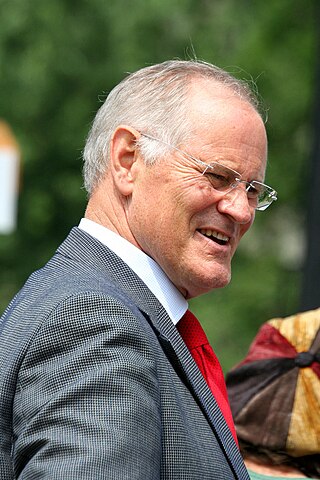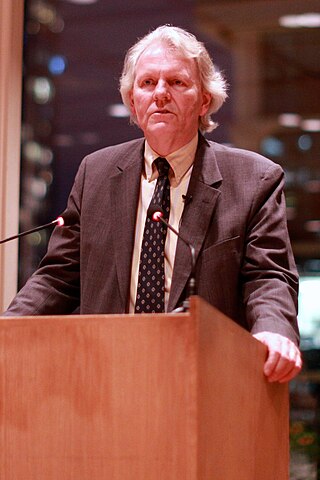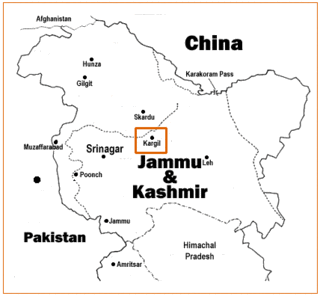Related Research Articles
Information security, sometimes shortened to infosec, is the practice of protecting information by mitigating information risks. It is part of information risk management. It typically involves preventing or reducing the probability of unauthorized or inappropriate access to data or the unlawful use, disclosure, disruption, deletion, corruption, modification, inspection, recording, or devaluation of information. It also involves actions intended to reduce the adverse impacts of such incidents. Protected information may take any form, e.g., electronic or physical, tangible, or intangible. Information security's primary focus is the balanced protection of data confidentiality, integrity, and availability while maintaining a focus on efficient policy implementation, all without hampering organization productivity. This is largely achieved through a structured risk management process that involves:

Security is protection from, or resilience against, potential harm. Beneficiaries of security may be persons and social groups, objects and institutions, ecosystems, or any other entity or phenomenon vulnerable to unwanted change.

The United States Department of Homeland Security (DHS) is the U.S. federal executive department responsible for public security, roughly comparable to the interior or home ministries of other countries. Its stated missions involve anti-terrorism, border security, immigration and customs, cyber security, and disaster prevention and management.

Jonathan Toby Harris, Baron Harris of Haringey is a Labour Party politician in the House of Lords.

The National Security Council is a federal institutional and consultative body chaired by the Prime Minister of Pakistan as its chairman. The NSC is a principal forum that is mandated for considering national security and foreign policy matters with the senior national security advisers and Cabinet ministers. The idea and inception of National Security Council was first conceived in 1969 under the President Yahya Khan, its functions were to advise and assist the president and prime minister on national security and foreign policies.

The Scientific and Technological Research Institution of Turkey is a national agency of Turkey whose stated goal is to develop "science, technology and innovation" (STI) policies, support and conduct research and development, and to "play a leading role in the creation of a science and technology culture" in the country.
The National Security Council (NSC) of India is an executive government agency tasked with advising the Prime Minister's Office on matters of national security and strategic interest. It was established by the former Prime Minister of India Atal Bihari Vajpayee on 19 November 1998, with Brajesh Mishra as the first National Security Advisor.

The State Security Council (SSC) was formed in South Africa in 1972 to advise the government on the country's national policy and strategy concerning security, its implementation and determining security priorities. Its role changed through the prime ministerships of John Vorster and PW Botha, being little used during the former's and during the latter's, controlling all aspects of South African public's lives by becoming the Cabinet. During those years he would implement a Total National Strategy, Total Counter-revolutionary Strategy and finally in the mid-eighties, established the National Security Management System (NSMS). After FW de Klerk's rise to the role of State President, the Cabinet would eventually regain control of the management of the country. After the 1994 elections a committee called National Intelligence Co-ordinating Committee was formed to advise the South African president on security and intelligence as well as its implementation.

William Carvel Graham was a Canadian lawyer, academic and politician. Graham served as the minister of foreign affairs, minister of national defence, leader of the opposition and interim leader of the Liberal Party of Canada. After leaving politics, he was the chancellor of Trinity College at the University of Toronto.

Abid Qaiyum Suleri is a Pakistani social policy analyst and development practitioner with a PhD in Food Security from University of Greenwich, UK. He has been the Executive Director of the Sustainable Development Policy Institute since 2007. Suleri gives policy advice and serves on various policy forums/advisory boards at national, regional, and international levels. Currently he is a member of the Prime Minister's Economic Advisory Council ; member of the National Advisory Committee of Planning Commission of Pakistan; and of Trade Policy Advisory Committee, Government of Pakistan. He serves on Board of Studies of various universities and also a member of Government of Punjab Vice Chancellor's search committee for Agricultural Universities in Punjab.

Geoffrey Nigel Gilbert is a British sociologist and a pioneer in the use of agent-based models in the social sciences. He is the founder and director of the Centre for Research in Social Simulation, author of several books on computational social science, social simulation and social research and past editor of the Journal of Artificial Societies and Social Simulation (JASSS), the leading journal in the field.

Security studies, also known as international security studies, is an academic sub-field within the wider discipline of international relations that studies organized violence, military conflict, national security, and international security.
The Vivekananda International Foundation (VIF) is an Indian public policy think-tank. It is considered to be aligned to right-of-centre in its policies.

Michael J. Prince is a Canadian political scientist and public policy and administration scholar. Prince is the Lansdowne Professor of Social Policy at the University of Victoria in Canada.
Santosh Mehrotra is a development economist, whose research and writings have had most influence in the areas of labour, employment, skill development, on the relationship between human development and economic growth, child poverty, and the economics of education. He was an economic adviser in the United Nations system in New York City, Italy, and Thailand (1991–2006), and technocrat in the government of India (2006–2014), apart from making contributions to academic research since the mid-1980s. He has also in recent years established a reputation as an institution-builder in the field of research in India, despite facing difficult odds. He brings a combination of professional experience: with the Indian government as a policy maker and adviser, with international organisations as a technical expert, having lived on three continents and travelled to 63 countries providing technical advice to governments; and as an academic whose research work has been translated into French, Spanish, Portuguese, Italian and German.

Ashok Gulati is an Indian agricultural economist and a former chairman of the Commission for Agricultural Costs and Prices (CACP), the advisory body of the Government of India on food supplies and pricing policies. Gulati was instrumental in the hiking the minimum support price of several food grains. Currently he is Infosys chair professor for Agriculture at Indian Council for Research on International Economic Relations (ICRIER). He is also a member of the Task Force on Agriculture set by the prime minister under NITI Aayog and chairman of the Expert Group on Agriculture Market Reforms (2015). He was an active member of the high-level committee set up by the NDA Government to restructure and reorient Food Corporation of India in order to improve its operational and financial efficiency.
Charles Frazer Hermann holds the Brent Scowcroft Chair in International Policy Studies at the George Bush School of Government and Public Service at Texas A&M University. He is an expert in matters relating to American foreign policy, crisis management, and decision-making.

The Department of Homeland Security (DSN), also known as Department of National Security, is an advisory staff department of the Spanish Prime Minister's Office on matters of National Security and it is a permanent member of the Spanish National Security Council. This body was created to reinforce the organization of the President's office, by assisting the President of the Government in his responsibility leading the national security policy of Spain. It was created on 2012 by the Royal Decree 1119/2012, of July 20, by which the structure of the President's office of the Government is modified.

The Kargil Review Committee (KRC) was set up by the Government of India on 29 July 1999, three days after the end of the Kargil War. The committee was set up "to examine the sequence of events and make recommendations for the future".

Kathryn Newcomer is an American Political Scientist, author and professor of public policy and public administration. She was previously the director of the George Washington University's Trachtenberg School of Public Policy and Public Administration.
References
- 1 2 Jack A. Jarmon, Bruce Oliver Newsome (2015). A Practical Introduction to Homeland Security and Emergency Management: From Home to Abroad. SAGE Publications. ISBN 9781506330822.
- 1 2 Newsome, Bruce (2013). A Practical Introduction to Security and Risk Management. SAGE Publications. ISBN 9781483313405.
- ↑ "Tories quietly shutter national security advisory council". iPolitics. 4 October 2012.